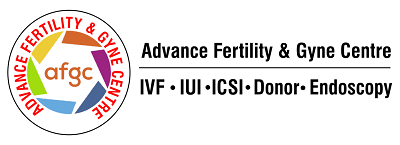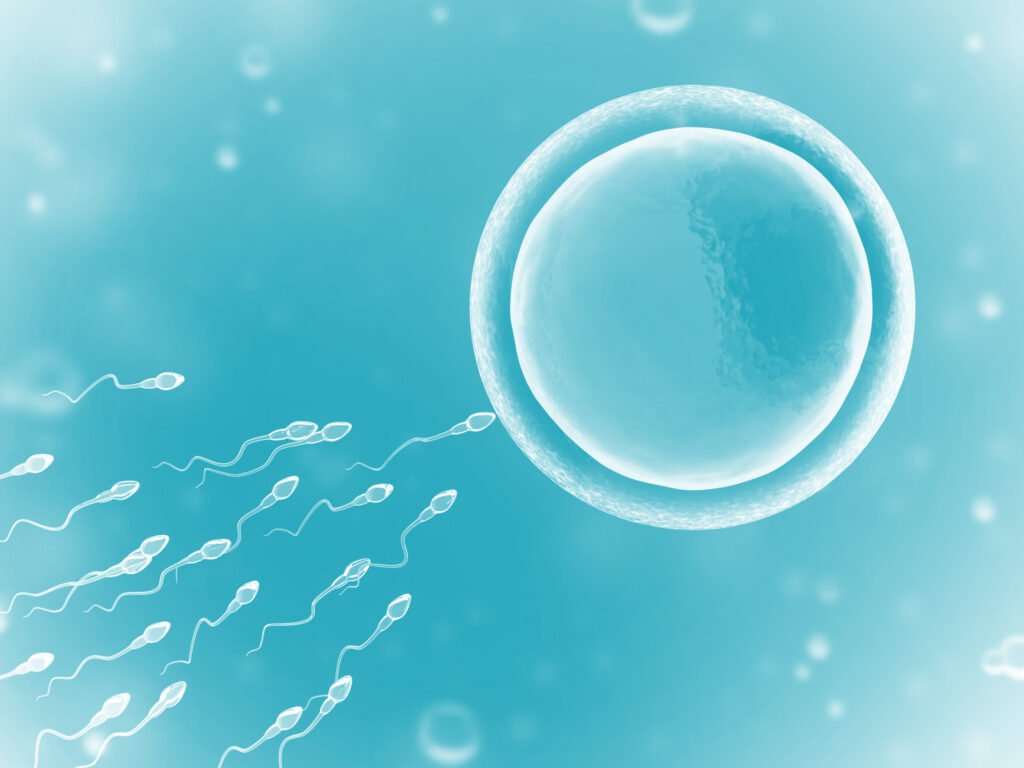Embarking on the journey to parenthood can be a mix of excitement and apprehension, especially when exploring fertility treatments. It’s important to remember that you’re not alone on this path. Medical science has evolved to offer advanced and personalised fertility solutions that can increase your chances of success.
Intrauterine insemination, or IUI treatment in India, is one such option that has gained popularity among couples for its effective and focused approach.
This technique involves the careful timing of sperm introduction into the uterus during a woman’s most fertile phase. Such precision greatly increases the likelihood of fertilisation and, ultimately, a successful pregnancy.
The beauty of IUI lies in its simplicity and the way it supports natural conception. Many couples have found hope and success through this treatment, particularly when undertaken at renowned facilities like Advance Fertility—the best IUI centre in Delhi. Here, expertise and care converge to offer you the best chance at starting or growing your family.
Advance Fertility is acknowledged as the best IUI centre in Delhi, renowned for its comprehensive and tailored IUI services. The centre distinguishes itself in providing IUI treatment in India through its dedication to excellence, individualised care, and high success rates. The medical team at Advance Fertility focuses on tailoring the IUI process to meet the specific needs of each individual or couple.
If you’re considering IUI treatment in India and wondering whether it’s the right choice, you’ve come to the right place. In this blog, we’ll explore the science behind the IUI process. You’ll learn about how successful IUI can be, the factors that influence these success rates, when IUI is typically recommended, and other valuable insights about this type of fertility treatment.
Whether you’re just starting to explore your options or you’re ready to take the next step, this guide will provide clarity and helpful information.
What is the science behind IUI?
IUI enhances the chances of conception by addressing some common barriers to natural fertilisation. Here’s a more detailed explanation of the science behind this process and how it increases the likelihood of pregnancy:
- In IUI, sperm is placed directly into the uterus, bypassing the cervix. This is important because the cervix can sometimes be a barrier to sperm entering the uterus due to its thick mucus, especially if the mucus is hostile to sperm. By depositing sperm directly into the uterus, IUI increases the number of sperm that reach the fallopian tubes, where fertilisation occurs, thus enhancing the chance of conception.
- The timing of the IUI procedure is also meticulously aligned with ovulation. By ensuring that sperm are present in the uterus at the time of ovulation, the chances that sperm will meet and fertilise the egg are greatly increased. This precise timing is a critical factor in the success of this treatment.
- In a stimulated IUI cycle, medications are used to promote the development of multiple follicles in the ovaries. This is beneficial because it increases the number of eggs available for fertilisation. The medications also help in improving the quality of the eggs released. The growth and development of these follicles are monitored closely via ultrasound, and when they reach the ideal size, a Human Chorionic Gonadotropin (HCG) injection is given. This injection triggers the final maturation of the eggs and their release (ovulation), ensuring they are at the optimal stage for fertilisation when the IUI is performed.
- Performing IUI within 24 to 36 hours after the HCG injection ensures that a high concentration of motile, healthy sperm is present in the uterus just as the eggs are released. This proximity in time and space between the sperm and the egg significantly raises the chances of successful fertilisation compared to regular intercourse, where timing and sperm count may not always be optimal.
In short, IUI treatment in India increases the chances of conception by overcoming cervical barriers, optimising the timing of sperm and egg meetings, and potentially increasing the number of quality eggs available for fertilisation. All these factors work together to enhance the likelihood of conception.
How effective is
Based on estimates from the Indian Medical Association, the average success rate for IUI ranges between 10-20% per cycle, though this can vary depending on individual factors.
The effectiveness of this procedure hinges on several critical elements. Couples need to be aware of the following primary factors that influence the success of IUI treatments as they navigate their path to becoming parents:
-
Pre-existing medical conditions (females) –
Medical conditions like polycystic ovary syndrome (PCOS), endometriosis, or cases of unexplained infertility can affect the effectiveness of IUI. It might be necessary to address these conditions with specific medical treatments to improve the chances of successful IUI. In cases where only one fallopian tube is open, with the other being blocked, the likelihood of pregnancy is influenced by the location of the blockage in the affected tube.
-
Pre-existing medical conditions (males) –
IUI presents a viable option for couples facing challenges related to male infertility, which could be due to a variety of factors such as abnormal sperm count, shape, movement, or blockages in the vas deferens. This treatment enhances the chances of natural conception by ensuring closer proximity of the sperm to the egg. In scenarios where male infertility is a factor, but the sperm quality is within the normal range or marginally low, IUI has shown a success rate of around 16.9%.
-
Timing –
The success of IUI is highly dependent on the correct timing related to ovulation. The procedure needs to be synchronised with the release of a mature egg from the ovaries, underscoring the importance of accurately monitoring ovulation.
-
Sperm quality –
The likelihood of successful fertilisation is higher with healthy, motile sperm that exhibit optimal morphology. Addressing issues related to male infertility, particularly sperm health, is essential.
-
Uterine health –
A conducive uterine environment is vital for IUI to be successful. The presence of conditions like fibroids, polyps, or infections in the uterus can negatively affect the results of IUI, so any such issues must be resolved first.
-
Cervical mucus –
The role of cervical mucus in IUI is crucial as it aids in the transport of sperm. Problems such as inadequate or hostile cervical mucus can obstruct the sperm’s path to the egg. Certain medications may be effective in enhancing the quality of cervical mucus.
-
Age –
This is a significant factor in IUI success, particularly for women. Fertility typically decreases as age increases.
In general, younger women under 26 years old without any fertility issues may experience success rates as high as 80%. For women aged 26 to 30, the success rate is around 40%, while it drops to about 20% for those aged 30 to 35. Women between 35 to 40 years old might see success rates of 10% or lower.
Undergoing multiple IUI cycles could potentially increase success rates to between 80-90%. This is why it is generally advised to attempt at least 3 to 4 cycles of IUI before considering alternative fertility treatments. Advance Fertility, being the best IUI centre in Delhi, boasts high success rates in IUI treatment in India.
Apart from these factors, elements such as lifestyle choices, emotional support, and professional medical advice all play a pivotal role in the treatment’s outcome.
Couples considering IUI need to adopt a comprehensive view, seeking thorough guidance and support to enhance their probability of success. It’s also crucial to remember that each individual’s journey is distinct; what may be effective for one couple might not necessarily apply to another.
To gain a clearer understanding of your chances of success with IUI, consult an infertility specialist who can assess your unique situation. They can offer a more tailored estimate based on your personal health and fertility profile.
Who are good candidates for IUI treatment in India?
-
Cases of mild male infertility –
IUI is often recommended for men with mild infertility issues, such as slightly low sperm count, minor issues with sperm motility (movement), or slightly abnormal sperm morphology (shape). In these cases, IUI can help by concentrating and directly placing the sperm into the uterus, thus increasing the chances of fertilisation.
-
Those with sexual dysfunction, including ejaculatory disorders and retrograde ejaculation –
This includes conditions like ejaculatory disorders and retrograde ejaculation, where ejaculation occurs backwards into the bladder instead of out through the penis. IUI bypasses these issues by directly inserting sperm into the uterus, thus circumventing the need for natural ejaculation.
-
Couples who have not conceived after ovulation induction treatments –
For couples who haven’t achieved pregnancy despite using treatments to stimulate ovulation, IUI offers a next step. It works in conjunction with ovulation induction to increase the number of available eggs and improve the odds of sperm reaching an egg.
-
Couples experiencing unexplained infertility –
When a couple is unable to conceive, and no clear cause is identified despite thorough medical evaluations, IUI may be attempted. It’s often one of the first treatments tried in such cases, as it’s less invasive and more cost-effective than other assisted reproductive technologies.
IUI is not suitable in certain situations, such as:
-
Severe fallopian tube issues –
If the fallopian tubes are significantly damaged or blocked, the sperm and egg cannot meet, rendering IUI ineffective. In such cases, IVF (In Vitro Fertilisation) might be a more suitable option.
-
History of pelvic infections –
Prior infections like pelvic inflammatory disease can cause scarring and damage to the reproductive organs, which can hinder the success of IUI.
-
Moderate to severe endometriosis –
Endometriosis can affect fertility in various ways, including causing damage to the ovaries or fallopian tubes or creating an inhospitable environment for fertilisation. Women with moderate to severe endometriosis may find more success with treatments like IVF.
IUI is a versatile and less invasive fertility treatment suitable for a range of conditions, particularly where the path to natural conception is hindered by mild factors. However, it’s not effective in cases where there are severe reproductive system complications.
What is the detailed procedure for IUI treatment in India at Advance Fertility?
If you’re interested in IUI at the best IUI centre in Delhi, book a consultation at Advance Fertility. Here is a look at what to expect when you choose to undergo this treatment.
Overview of the process
IUI can be performed in both natural and stimulated cycles.
- For natural cycles, follicular monitoring begins around the 9th or 10th day of the menstrual cycle and continues until the follicle ruptures, at which point IUI is performed.
- In stimulated cycles, the process begins on the second day of menstruation with medications or hormone injections. The development of follicles is monitored via ultrasound, and the HCG injection is given when follicles reach the desired size. IUI is then performed about 36 hours post-injection.
What are the visits and hospitalisation requirements for IUI?
The total number of visits for IUI treatment can range from 2 to 5. IUI is an outpatient procedure, so overnight hospitalisation is not necessary. The male partner is required to be present on the day of IUI to provide a sperm sample.
What is the timeline and scheduling for IUI treatment?
An IUI cycle generally spans approximately 15 days from the onset of menstruation to the day of sperm insemination. Patients should ideally arrive a few days before their cycle begins.
For those unable to commit this amount of time, obtaining medications in advance can reduce the stay to around 5 to 7 days. Travelling immediately after IUI does not decrease the likelihood of pregnancy. The pregnancy test is typically taken 15 days post-IUI.
Advance Fertility – Pioneering IUI treatment in Delhi
IUI treatment in India at Advance Fertility in Delhi offers a promising path for couples aspiring to conceive. With a combination of advanced technology, standard and internationally recognised tests, personalised care, and a deep understanding of each patient’s unique needs, the journey towards parenthood becomes a well-supported and hopeful experience.
As the best IUI centre in Delhi, we have state-of-the-art facilities and in-house testing capabilities that aid us in delivering personalised treatment plans. We cater to patients with various medical histories, such as thyroid disorders or diabetes, and those who have experienced miscarriages. If a patient is deemed unsuitable for IUI, alternative conception methods are explored.
Every journey to parenthood is unique and filled with its own set of challenges and triumphs.
Your dream of becoming a parent can become a beautiful reality with the right medical care and guidance. At Advance Fertility, you’re supported not just by medical professionals but also by caring and compassionate staff who understand your journey.


